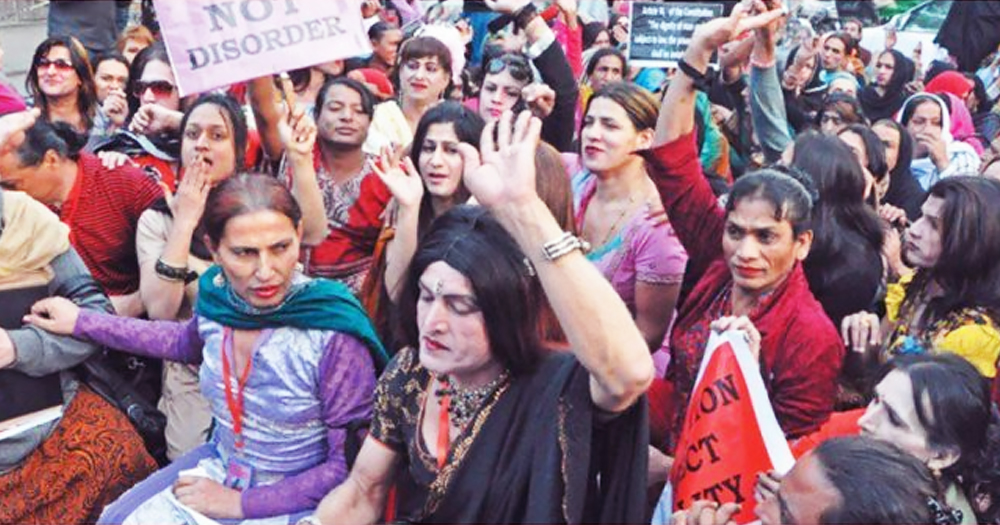The Punjab School Education Department (SED) announced that the first separate school for Transgender people will be opened in Lahore, the capital city of the Punjab province, in Pakistan. It is not the first of its kind in the country and the reasons why such an institution is needed are to be found in colonial history.
The first school for the Transgender community in this part of Pakistan was opened in Multan and there are plans to establish more of them in all districts of Punjab. The need for this type of separate school, according to Minister of Punjab for School Education Murad Raas, rises from reservations about the behaviour of other students.
Transgender people in Pakistan face constant discrimination, to the point that many of them are disowned by their families and resort to living together in communities. They are systematically excluded from education, which means that almost half of the community is illiterate.
Joint Statement on the Endemic Patriarchal Violence Targeting the Khawaja Sira and Transgender Community in the last two weeks #StopTransViolence pic.twitter.com/6k0apxtZv2
— Aurat Azadi March Islamabad (@AuratAzadiMarch) March 23, 2022
They have difficulties in finding housing and jobs and according to a 2016 survey, 51% of their overall income is earned through dancing practices such as toli (ceremonial dances they perform at weddings and births), 15% from sex work and 12% from begging. Moreover, they are exposed to very high levels of hate violence, which too often results in murder.
The source of such systemic discrimination and exclusion is to be found in the colonial history of the country. Historical references to gender non-conforming individuals in South Asia date back thousands of years and they demonstrate that their experiences in the past were not ones of hate and discrimination. They are also known as Khawaja Sira, which is a term that also includes intersex people and is intentionally vaguely defined. In the past, they occupied a central role in society, taking part in religious and cultural ceremonies, and they were widely respected.
We had a heart to heart discussion with a group of trans individuals about their work, health and survival. Time like these make the bond even stronger.Akhuwat Khawaja Sira Support program. ✊?#TransAwarenessWeek pic.twitter.com/ZgezyMCnMz
— Saima Hashim (@SaimaHash) November 15, 2021
Things started to change dramatically for them when the region that comprises the modern state of Pakistan became part of the British Indian Empire in 1858. The British colonisers actively attempted to eliminate this group from society by passing legislation in 1871, the Criminal Tribes Act, that criminalised their very existence. At the time, British society was experiencing a stiffening of binary gender rules and sexual norms and the colonisers brought this rigidity all the way to South Asia.
The Transgender community in Pakistan, as well as in other parts of South Asia, did not fit their binary understandings of gender. The British viewed these communities as a potential disruption of the colonial moral, social and political order and for that reason, they began to ostracise them. The results of that process can be detected in the Khawaja Sira‘s lived experiences nowadays, even though the Criminal Tribes Act was repealed in 1949 and, at least in theory, Pakistan has progressive laws that protect Trans rights.
Read here what Moon Ali,
Director Program Khawaja Sira Society,
Board Member ILGA Asia, says on #WAD2020Pak #GlobalSolidarity #SharedResponsibility pic.twitter.com/ezMbSWm9dS— UNAIDS Pakistan (@UNAIDS_Pakistan) December 6, 2020
In fact, in 2009, Pakistan became one of the first and only countries in the world to legally recognise a third gender. In 2018, the Parliament passed the Transgender Rights Protection Act, which contains a provision that allows Transgender people to self-declare their gender.
Even though proper legislation is in place, the mindset of society still hasn’t really changed. This means that discrimination, social exclusion and even violence are still very much part of Transgender people’s lives in Pakistan, hence the need for separate schools for them. Activists have called on the international community to support their struggle for rights. They believe that, eventually, it could actually make a difference.
© 2022 GCN (Gay Community News). All rights reserved.
Support GCN
GCN is a free, vital resource for Ireland’s LGBTQ+ community since 1988.
GCN is a trading name of National LGBT Federation CLG, a registered charity - Charity Number: 20034580.
GCN relies on the generous support of the community and allies to sustain the crucial work that we do. Producing GCN is costly, and, in an industry which has been hugely impacted by rising costs, we need your support to help sustain and grow this vital resource.
Supporting GCN for as little as €1.99 per month will help us continue our work as Ireland’s free, independent LGBTQ+ media.
